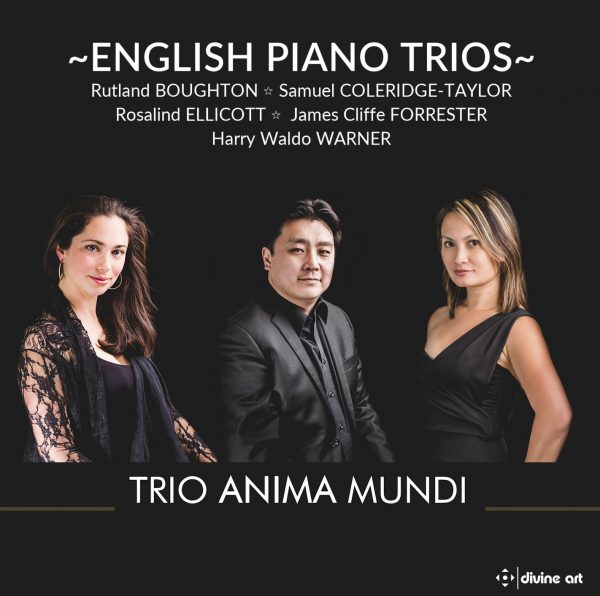American Record Guide
Two of the best works are by composers new to me—Rosalind Ellicott (1857-1924) and Harry Waldo Warner (1874-1945). Ellicott’s Trio dates from 1889. I opens with a pleasant 6/8 melody before the movement becomes darker and more compact. The slow movement is more soulful, with a strong striding theme followed by lengthy melody with a cogent arc of development. III has forward motion from balanced antiphonal phrases, with structurally good harmony in its contrasting passages. The work leaves an agreeable after-impression with its suave, fluid writing. An interesting aspect of the music is its comparative freedom from Brahms’s influence.
Warner’s Trio (1921) is an even better find. It has a dramatic ascending theme with tangy harmonic accompaniment. The development has engaging faux-orientalisms with some of the best integration of whole-tone phrases I’ve ever heard. II opens with a toccata-like piano part. The theme has whole-tone piano glisses under it as accompaniment. The trio uses an elegant violin melody, taken up by the cello with even more distinction. Ill begins by alternating descending string lines with rhetorical piano interjections before returning to the playful spirit of I. In a contrasting slower segment, the mood grows mysterious, mixing meters with adroit skill. The whole piece is a delight.
Samuel Coleridge-Taylor’s 1893 Trio is a teenage effort. Its brevity still allows audible scope for the young composer’s talent. Boughton’s Celtic Prelude (1921) has a pleasing theme in the Mixolydian mode, its development ably distributed among the players. The second theme has a distinctive accompaniment of crushed piano arpeggios. The work ends in a 6/8 dance in the Vaughan-Williams style.
James Cliffe Forrester’s Folk Song Phantasy (1917), though it tends to amble about, is still a quarter-hour of good British musical landscaping. As the piece proceeds, it builds in richness. A good arranger could turn it into a fine orchestral fantasy.
The performances are adept, with sensitivity to dynamics, excellent phrasing, and precise articulation. The music all has merit, but Warner’s Trio makes this worth getting.
@divineartrecordingsgroup
A First Inversion Company
Registered Office:
176-178 Pontefract Road, Cudworth, Barnsley S72 8BE
+44 1226 596703
Fort Worth, TX 76110
+1.682.233.4978












